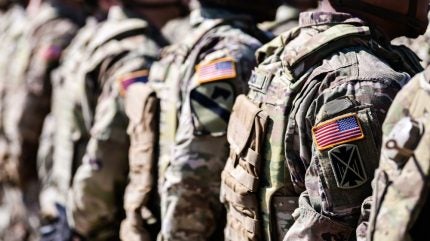
NCTO explains the House National Defence Authorisation Act (NDAA) bill, which sets policy and funding priorities for the US military, includes a key provision that would eliminate a statutory exemption under the Berry Amendment that acts as a loophole allowing the US military to buy textiles abroad instead of from US textile manufacturers as long as the purchase is at or below a small purchase threshold of $150,000.
It argues the loophole has undercut the Berry Amendment, which requires the Department of Defense (DOD) to purchase 100% US-made textiles and clothing.

Discover B2B Marketing That Performs
Combine business intelligence and editorial excellence to reach engaged professionals across 36 leading media platforms.
NCTO also shares that the NDAA incorporates language from the Better Outfitting Our Troops (BOOTS) Act that it has championed. It directs the Secretary of Defense to issue regulations within two years that prohibit any member of the Armed forces from wearing optional combat boots unless they are made in the US with American-made components, with limited exceptions.
NCTO states: “The measure closes another gap that has allowed active-duty troops to be supplied with foreign-made boots, undermining US footwear manufacturers.”
NCTO president and CEO Kim Glas adds: “We commend the House for passing the FY 2026 NDAA with these critical provisions that bolster American manufacturing, strengthen economic competitiveness, and ensure our Armed Forces are equipped with the best US-made uniforms and gear.
“Our industry produces more than 8,000 products annually for the US military —including over $1.8bn in uniforms, footwear, and personal equipment — and plays a vital role in our national defense.”

US Tariffs are shifting - will you react or anticipate?
Don’t let policy changes catch you off guard. Stay proactive with real-time data and expert analysis.
By GlobalDataShe notes NCTO appreciates the leadership of Congressman Don Davis (D-NC) and Congressman Pat Harrigan (R-NC), who led efforts to close the Berry Amendment loophole and co-sponsored the amendment to the NDAA.
Glas asserts that these provisions “will expand opportunities for US textile manufacturers, safeguard domestic supply chains, and ensure our troops continue to receive innovative, high-quality American-made products”.
She concludes: “We urge the Senate to include these measures in its version of the legislation and look forward to working with both chambers to ensure the provisions are included in the final conference report.”





